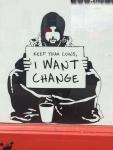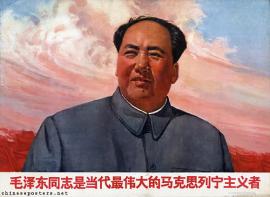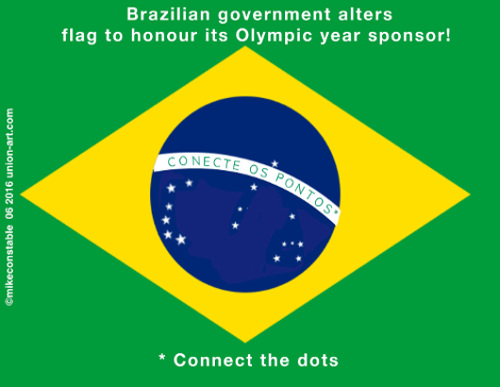Current IssueFrom the Editors
In this issue we are proud to present a previously unpublished lecture by C.L.R. James, the noted Afro-Caribbean Marxist intellectual. His discussion of Oliver Cox’s book Caste, Class, and Race, first published in 1948, brings an historic Black socialist voice to illuminate some of the issues that face our own times and the demand that Black Lives Matter. Washington and Moscow: Halt the Bombing and Stop Supporting Dictators in the Middle East!
A Discussion of the Sanders CampaignWinter 2016
Bernie Sanders and the Dilemma of the Democratic “Party”
The Sanders Campaign and the Left
Symposium on InequalityWinter 2016Introduction
Inequality has become a defining issue of our time, with political commentators of all stripes discussing its causes, effects, and possible solutions. Thomas Piketty’s 2013 work, Capital in the Twenty-First Century, set off a chain reaction of books, journal articles, conferences, and debates focusing on questions of inequality. We intend to push this critique further. The Systemic EdgeAn Interview with Saskia Sassen
The Rise of the Servant Society
Debt, Underemployment, and CapitalismThe Rise of Twenty-First-Century Serfdom
The Roots of the Modern Housing Crisis
Introduction
In 1971 the Institute of the Black World (IBW) was at a crossroads. Founded in 1969 by historian Vincent Harding, literary scholar Stephen Henderson, and other scholars in the colleges that comprised the Atlanta University Center (AUC), as well as with the support of leading national researchers of the African American experience, the IBW served as the intellectual wing of the Martin Luther King Center. The Class Basis of the Race Question in the United States
Turkey, Kurdistan, and RojavaWinter 2016Prospects for TurkeyA Historical Perspective
A Commune in Rojava?
The Kurds, Bookchin, and the Need to Reinvent Revolution
Who Wins From “Climate Apartheid”?African Climate Justice Narratives About the Paris COP21
Wealth Extraction, Governmental Servitude, and Social Disintegration in Colonial Puerto Rico
Podemos and the 15M Language Community
Radical Art: Art Young and the Cartoons of American Socialism
Social Capital and Class
The American Dream, that fantasy of growth that has long girded the ideology of entrepreneurship and a better future, is in crisis. Many haven’t felt the dream for decades, some never having experienced it at all. Robert Putnam, in his latest work, Our Kids, seeks to confront this stagnation in our economic dreams by interrogating the forces that have taken hold of communities across the United States. An Insider’s Look at What it Takes to Get By
In 2001, Professor Danny Dorling wrote an essay entitled “Anecdote Is the Singular of Data.” In it he explored how, during his teenage years, he grasped the idea that the places people live impact the lives they lead. Dorling opens the essay by describing a pedestrianized subway near his childhood home. The subway had four entrances, each leading from a different housing development. Who’s in Charge?The Power Structure and Foreign Policy
The godfather of macro-level power structure research in the United States was the sociologist C. Wright Mills, author of The Power Elite (1956). What Is This Thing Called Leninism?
First, allow me to come clean: I count Paul Le Blanc as a friend and comrade and am in his debt—along with Peter Hudis, author of Marx’s Concept of the Alternative to Capitalism (Haymarket, 2013)—for inviting me to join the editorial board of the Complete Works of Rosa Luxemburg being published by Verso Books. And I am in agreement with many of the positions on politics and historical matters that Le Blanc expresses in Unfinished Leninism. The Intelligent Human’s Guide to Socialism
This is the book many socialists have been waiting for, although we probably didn’t know it. In just over 150 pages it describes the core socialist ideas in a clear, highly accessible way. The fact that the book is frequently laugh-out-loud funny makes it even better. Socialism … Seriously is written for people who are new to socialism and want to find out what it’s all about. The first question about a book that sets out to explain socialism is, of course, what the author means by socialism. The Party of “Peace and Justice”
First, full disclosure: I read most of Jack Ross’s The Socialist Party of America in draft. Although it is normally not good policy to then review the book, I felt I could express my respect for what Jack Ross is attempting and share my concerns in a way that could serve a useful purpose. A Bottom-Up History, Not a Comfortable Reinforcement
Agustín Guillamón is a dedicated anarcho-syndicalist activist whose partisanship has not affected his critical sensitivities nor prevented him from graphically outlining what he regards as the errors and inconsistencies of the Spanish libertarian left. Happiness Is PoliticalWilliam Thompson’s Utilitarian Argument for Democratic Work
”Happiness is political,” is the opening line of Kaswan’s provocative book on William Thompson’s theory on the social nature of happiness and its ramification for organizing a just society. Kaswan introduces the reader to Thompson (1775-1833) as “perhaps the paradigmatic case of a traitor to his class.” Thompson was the only son of a wealthy merchant in Cork, Ireland; however as a political theorist, he developed ideas of the Enlightenment in a liberatory direction, calling for the elimination of subordination in all its manifestations. |
Blogs & On-Line FeaturesBrexit: A Victory for the Populist Right
The British electorate issued a stunning rebuke to the establishment by demanding, by a surprisingly respectable margin, withdrawal from the European Union. Just weeks ago, this outcome was considered remote. For David Cameron and the Conservative mainstream, it was – or so it seemed – a clever gamble. Let the nativists of the right, the Tory backbenchers and the UK Independence Party bigmouths test their outsized claims to speak for Britain. A Story from El Salvador: Julio Molina, Saving Historic Memory
#Brexit, Support for Mexico's Teachers, and Solidarity From Below
To show support for Mexico's teachers, demonstrations are being held internationally, as they are in the U.S. In today's blog about the situation in Mexico, Mary Compton provides background to the current repression and information about how readers can support the teachers.
Demonstrations in U.S. against Mexican Government's Violent Attacks on Teachers
There were demonstrations yesterday at Mexican Consuls in several American cities protesting the Mexican government’s violent repression of teacher protests in Oaxaca. Many of the protests also criticized the U.S. government for supply the Mexican government with military equipment being used in military and police actions against the teachers. There were protests in New York, Chicago, Houston, and Los Angeles among other cities. The one pictured here, which grew to a couple of hundred people, took place in Manhattan at the Mexican Consul.
The People's Summit, June 17-19, 2016, Chicago: Movements + Elections = Progress
Three thousand Bernie Sanders supporters from all over the US gathered in Chicago to share ideas, hear about each other’s movements, learn about becoming “down-ballot” candidates, and collectively grieve. The Summit started by acknowledging that the Bernie Sanders for President movement suffered a loss: he will, very likely, not be running for President of the United States in 2016, either on the Democratic Party ticket or any other. While the Summit celebrated the joy of the movement, having a candidate to actually believe in, the shared energy of working so hard on concrete tasks like phone banking and door-to-door canvassing, meeting new friends and building new alliances, the big question hanging over the crowd was “Where do we go from here?” Evo’s Bolivia: Ten Years On
This article is based on a talk given at the Left Forum in New York City, May 21, 2016. Evo Morales’ government has suffered two significant electoral setbacks in the past year and is currently mired in scandal, which has put its long term projections – planned for up to 2025 - into question. Why is one of the America’s most progressive government’s stumbling at this juncture? Life After Bernie: People’s Summit Searches for the Movement’s Political Future
The mood among the 3,000 Bernie Sanders supporters meeting in Chicago McCormick Place was improbably optimistic this past weekend, with many of the speakers proclaiming to cheering crowds that the movement has been victorious—even though Hillary Clinton, the presumptive nominee of the Democratic Party has received a majority of the popular votes and a majority of elected delegates and super-delegates, as well as the endorsements of President Barack Obama, Vice-President Joe Biden, and Senator Elizabeth Warren. That disjuncture—between the Sanders’ movement’s belief that we have achieved something quite important and Clinton’s clear victory in the primary—provides the contradictory context for this conference of progressives, radicals, and socialists searching for the way to the future, I among them.
After Bernie—Electoral Strategy for the Left in 2016
Now that Donald Trump, an overt racist, has wrapped up the Republican nomination for U.S. President, a chorus of voices is proposing a “left strategy” which can “defeat Trump” by electing the more covert racist, Hillary Clinton, whom the Democratic Party will almost surely be nominating. An Eight-Point Brief for LEV (lesser evil voting)
Preamble: Among the elements of the weak form of democracy enshrined in the constitution, presidential elections continue to pose a dilemma for the left in that any form of participation or non participation appears to impose a significant cost on our capacity to develop a serious opposition to the corporate agenda served by establishment politicians. The position outlined below is that which many regard as the most effective response to this quadrennial Hobson’s choice, namely the so-called “lesser evil” voting strategy or LEV. Simply put, LEV involves, where you can, i.e. in safe states, voting for the losing third party candidate you prefer, or not voting at all. in competitive “swing” states, where you must, one votes for the “lesser evil” Democrat. All Cops Are Bastards, Even The Gay Ones
The Stonewall riots kicked off in protest against a police raid on the Stonewall Inn on June 28, 1969. Especially after Orlando, we should resist the co-optation of Gay Pride and instead remember the revolutionary spirit of the queer and trans militants who fought against oppression and violence against them. Third Camp Politics: An Interview with Phyllis and Julius Jacobson
[This interview was originally published in Left History, vol. 18, no. 1 (2014).] Phyllis Jacobson (1922-2010) and Julius Jacobson (1922-2003) were socialist activists in New York City from the mid-1930s through the first years of the twenty-first century. They were members of a radical generation that came of age during the great depression and embraced the language of socialism, communism, and Marxism. They were also the children of working class Jewish immigrants who grew up in the city’s outer boroughs. For their parents, the First World War, the Bolshevik Revolution, and the general strikes and mass uprisings that convulsed many countries after the war were all recent events. The near collapse of the global economy in the early 1930s confirmed for many of their cohort the basic assumption that capitalism was inherently impermanent. Adopting a socialist outlook in a period characterized by social upheaval and economic crisis was easy; the challenge had to do with selecting a suitable group or tendency from a fissiparous menu of options. Demystifying Maoism - Book Review
Elliott Liu. Maoism and the Chinese Revolution: A Critical Introduction. Oakland: PM Press, 2016. 148 pages. Bibliography. Notes. Photos. Tables. During the 1960s and early 1970s, Maoism became the dominant political tendency not only in China but also in Western Europe and the United States, while it also influenced developments in Asia, Latin America and Africa. In the United States thousands of young activists rallied to Maoism, a political theory and practice that appeared at the time to be a democratic alternative to the bureaucratic Communism of the Soviet Union.
Orlando: We Will Not Be Silenced
On Sunday 12 June, 49 people were murdered in an LGBT club in Orlando, Florida, in the largest mass shooting in US history. At around 2am the attacker Omar Mateen entered the Pulse nightclub and opened fire; shortly after he took a number of people hostage, barricading them and himself in a bathroom. Police used an armoured vehicle to demolish the wall into the bathroom, before engaging in a gun battle in which Mateen was killed. 53 more people were injured in the attack. The victims ranged from 20 to 50 years old, and were apparently overwhelmingly from black and Latino communities. Where Will the Sanders Movement Go Now?
For a year now presidential candidate Bernie Sanders has been the hope of millions in the United States, people who were disgusted with the role of the banks and corporations in politics, angered by the increasing inequality in society, appalled by our country’s racial injustice, and opposed to a foreign policy based on military intervention. Throughout the nation millions rallied to Sanders’ slogans calling or a fight against the “billionaire class” and for a political revolution. Taking up the demands and embracing the spirit of Occupy Wall Street first and then of Black Lives Matter, the Sanders campaign has been an unprecedented radical, populist movement, rejecting Wall Street and Washington and suggesting a more democratic, egalitarian, and peaceful future.
Imperialism’s Junior Partners
On May 12, Brazil's democratic government, led by the Workers’ Party (PT), was the victim of a coup. What will the other BRICS countries (Russia, India, China, and South Africa) do? Will they stand by as the reactionaries who took power in Brasilia pivot closer to Western powers, glad to warm Dilma Rousseff's seat at the BRICS summit in Goa, India in five months’ time? Or take a stronger line, following the lead of Latin American progressive countries (Venezuela, Cuba, Ecuador, Bolivia, Nicaragua and El Salvador)? |

 Outside powers have had a long and shameful history of cynically supporting dictatorships in the Middle East because maintaining friendly autocratic states in the region suits their geopolitical objectives. And today those criminal policies are flagrantly on display.
Outside powers have had a long and shameful history of cynically supporting dictatorships in the Middle East because maintaining friendly autocratic states in the region suits their geopolitical objectives. And today those criminal policies are flagrantly on display.  The Bernie Sanders campaign in the Democratic Party has attracted the support of millions, raised an economic reform program such as we have not seen in decades, and has led to a national discussion about the nature of socialism. At the same time, he has ceased to be an independent, has joined the Democratic Party, and has promised to support its nominee, in all likelihood Hillary Clinton. This has led to much discussion and debate on the left. New Politics has solicited two articles from different points of view on the Sanders campaign, one by our co-editor Jason Schulman and the other by Lance Selfa and Ashley Smith of the International Socialist Organization.
The Bernie Sanders campaign in the Democratic Party has attracted the support of millions, raised an economic reform program such as we have not seen in decades, and has led to a national discussion about the nature of socialism. At the same time, he has ceased to be an independent, has joined the Democratic Party, and has promised to support its nominee, in all likelihood Hillary Clinton. This has led to much discussion and debate on the left. New Politics has solicited two articles from different points of view on the Sanders campaign, one by our co-editor Jason Schulman and the other by Lance Selfa and Ashley Smith of the International Socialist Organization. Some months ago I responded to a piece that appeared on the New Politics blog by my longtime fellow NP editorial board member and friend Barry Finger.1 In my own blog, I argued that Barry had a better, more sophisticated understanding of the peculiarities of the Democratic Party and the U.S.
Some months ago I responded to a piece that appeared on the New Politics blog by my longtime fellow NP editorial board member and friend Barry Finger.1 In my own blog, I argued that Barry had a better, more sophisticated understanding of the peculiarities of the Democratic Party and the U.S. Senator Bernie Sanders’ run for the Democratic Party nomination for president has certainly energized thousands. It has also rekindled an old debate on the American left that revolves around the question: Should the left join, endorse, support, or work for campaigns in the Democratic Party?
Senator Bernie Sanders’ run for the Democratic Party nomination for president has certainly energized thousands. It has also rekindled an old debate on the American left that revolves around the question: Should the left join, endorse, support, or work for campaigns in the Democratic Party? SASKIA SASSEN is the Robert S. Lynd Professor of Sociology at Columbia University (www.saskiasassen.com). She was interviewed for
SASKIA SASSEN is the Robert S. Lynd Professor of Sociology at Columbia University (www.saskiasassen.com). She was interviewed for  We are witnessing a grand shift in the nature of capitalist society. It is not to be found simply in the expanding chasms of economic inequality, nor in the rapid social and cultural transformations shaped by globalization. Of course, economic inequality raises concern among liberals, social democrats, and socialists alike. For all see in it an ethical problem, one of unfairness, of greed, of unequal control and power.
We are witnessing a grand shift in the nature of capitalist society. It is not to be found simply in the expanding chasms of economic inequality, nor in the rapid social and cultural transformations shaped by globalization. Of course, economic inequality raises concern among liberals, social democrats, and socialists alike. For all see in it an ethical problem, one of unfairness, of greed, of unequal control and power. Systemic contradictions of capitalism have only intensified in the neoliberal era. Structural unemployment, a phenomenon directly related to capitalist modes of production, has continued unabated, creating a massive and ever-growing “reserve army of labor” that has been disenfranchised on an unprecedented scale.
Systemic contradictions of capitalism have only intensified in the neoliberal era. Structural unemployment, a phenomenon directly related to capitalist modes of production, has continued unabated, creating a massive and ever-growing “reserve army of labor” that has been disenfranchised on an unprecedented scale.  Americans today face a dual crisis: rising rents and increasingly unaffordable housing markets. The housing crisis, far from being over, has metastasized.
Americans today face a dual crisis: rising rents and increasingly unaffordable housing markets. The housing crisis, far from being over, has metastasized. Now as usual, ten past nine; I certainly will not go on beyond ten past ten. And I would like to say at once that this is the task. It is so difficult that it is as well to say at the beginning that it can be done. Five hundred and eighty-three pages [Oliver Cox’s Caste, Class and Race: A Study in Social Dynamics].
Now as usual, ten past nine; I certainly will not go on beyond ten past ten. And I would like to say at once that this is the task. It is so difficult that it is as well to say at the beginning that it can be done. Five hundred and eighty-three pages [Oliver Cox’s Caste, Class and Race: A Study in Social Dynamics]. In a June 2015 election, the new People’s Democracy Party (HDP) of Turkey passed a highly undemocratic 10 percent threshold to enter the Turkish parliament.
In a June 2015 election, the new People’s Democracy Party (HDP) of Turkey passed a highly undemocratic 10 percent threshold to enter the Turkish parliament. The siege of Kobani by Islamic State (ISIS) brought worldwide attention to the Syrian Kurdish PYD (Partiya Yekîtiya Demokrat, Democratic Union Party), the leading force in the Kurdish-majority areas in northern Syria. The PYD calls this region Rojava—literally meaning “land of the sunset” but also translated as “West Kurdistan.”
The siege of Kobani by Islamic State (ISIS) brought worldwide attention to the Syrian Kurdish PYD (Partiya Yekîtiya Demokrat, Democratic Union Party), the leading force in the Kurdish-majority areas in northern Syria. The PYD calls this region Rojava—literally meaning “land of the sunset” but also translated as “West Kurdistan.”  Today, a year after the heroic resistance of Kobani made it to the world news, it is hardly necessary to give an introduction to the Kurdish struggle, which has now taken a central place in the imagination of the international left, both vanguardist and anti-authoritarian.
Today, a year after the heroic resistance of Kobani made it to the world news, it is hardly necessary to give an introduction to the Kurdish struggle, which has now taken a central place in the imagination of the international left, both vanguardist and anti-authoritarian. The billion residents of Africa are amongst the most vulnerable to climate change in coming decades, and of special concern are high-density sites of geopolitical and resource-related conflicts: the copper belt of the Democratic Republic of the Congo and mineral-rich African Great Lakes stretching into northern Uganda, western Ethiopia (bordering the Sudanese war zone), Madagascar and s
The billion residents of Africa are amongst the most vulnerable to climate change in coming decades, and of special concern are high-density sites of geopolitical and resource-related conflicts: the copper belt of the Democratic Republic of the Congo and mineral-rich African Great Lakes stretching into northern Uganda, western Ethiopia (bordering the Sudanese war zone), Madagascar and s After ten years of economic contraction, many of the citizens of Puerto Rico find themselves watching the secular decomposition of a reality that in its heyday was painted by many as one of relative socio-economic welfare.
After ten years of economic contraction, many of the citizens of Puerto Rico find themselves watching the secular decomposition of a reality that in its heyday was painted by many as one of relative socio-economic welfare. The Indignados (in English, the “outraged”), protagonists of what is called the Spanish May 15, or 15M, Revolution (2011-2013), concentrated a great deal of their political action on the construction of a shared conceptual and emotional understanding of the political reality around them.
The Indignados (in English, the “outraged”), protagonists of what is called the Spanish May 15, or 15M, Revolution (2011-2013), concentrated a great deal of their political action on the construction of a shared conceptual and emotional understanding of the political reality around them. Arthur Henry Young (1866-1943), known to the world as Art, was arguably the most widely recognized and beloved cartoonist in the history of American radicalism. A working cartoonist for sixty years, Art Young drew thousands of simple black-line drawings with biting captions that appeared in big-city newspapers, liberal magazines, and, most importantly, in the socialist, labor, and radical press of the early twentieth century.
Arthur Henry Young (1866-1943), known to the world as Art, was arguably the most widely recognized and beloved cartoonist in the history of American radicalism. A working cartoonist for sixty years, Art Young drew thousands of simple black-line drawings with biting captions that appeared in big-city newspapers, liberal magazines, and, most importantly, in the socialist, labor, and radical press of the early twentieth century.
 There are 500 delegates from more than 100 political organizations in the Americas here at the São Paolo Forum being held this year in San Salvador. Yesterday at the opening session I found myself seated next to Julio Molina, a delegate from the Farabundo Martí National Liberation Front (FMLN) of the host country, El Salvdor. We introduced ourselves and when the session ended went out to talk about our mutual interest in history.
There are 500 delegates from more than 100 political organizations in the Americas here at the São Paolo Forum being held this year in San Salvador. Yesterday at the opening session I found myself seated next to Julio Molina, a delegate from the Farabundo Martí National Liberation Front (FMLN) of the host country, El Salvdor. We introduced ourselves and when the session ended went out to talk about our mutual interest in history.












